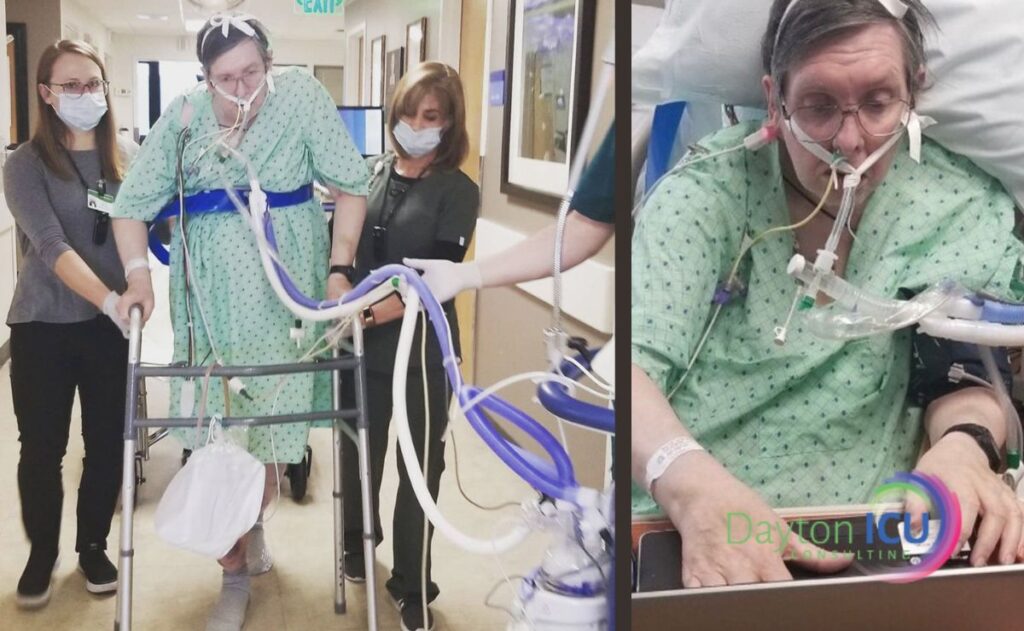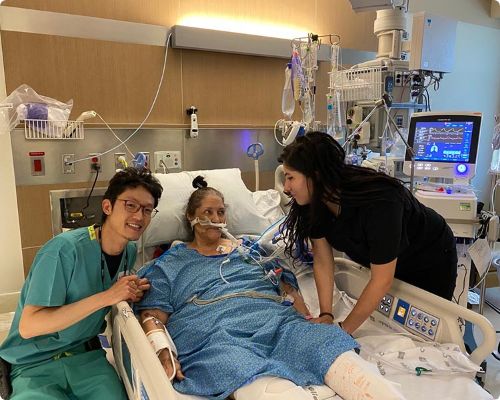
Diane’s Story: An Unfortunate Example of the Risks of Immobility and Sedation
Despite their widespread use in the ICU, decades of research have proven the risks of immobility and sedation. And as clinicians, it’s easy to approach care as a robotic conveyor belt instead of focusing on the individuals, families, lives, careers, and futures that are being affected. But in reality, ICU patients are being harmed, having
Learn More > from Diane’s Story: An Unfortunate Example of the Risks of Immobility and Sedation


 I stumbled upon Kali’s podcast midway through my anesthesia critical care fellowship in February 2021. At our institution, I got the impression that patients in the ICU either got better on their own or had a prolonged and complicated course to LTAC or death. In her podcast, Kali explained that LTAC was rarely the outcome for patients in the Awake and Walking ICU in Salt Lake City.
I stumbled upon Kali’s podcast midway through my anesthesia critical care fellowship in February 2021. At our institution, I got the impression that patients in the ICU either got better on their own or had a prolonged and complicated course to LTAC or death. In her podcast, Kali explained that LTAC was rarely the outcome for patients in the Awake and Walking ICU in Salt Lake City.
